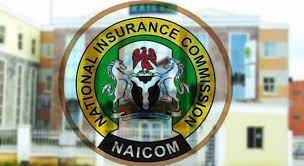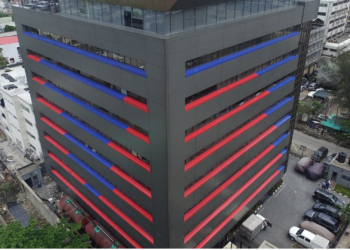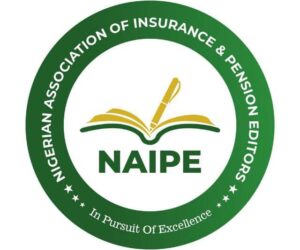This year’s theme for Professional Forum, of the Chartered Insurance Institute of Nigeria: “Power of the Past: A Force for the Future of the Insurance Sector in Nigeria,” not only captures the thought of the Institute, a detail of past and future plans, it also fits into the multiple programmes being rolled out by National Insurance Commission, recollecting the past and chronicling all that are in place for now and the future.
This was captured in the keynote address of the Commissioner for Insurance, Mr. Sunday Thomas, which he said “is apt and relevant to the current efforts to enhance the performance of the insurance industry and diversify its productive base.”
The Commission he promised, would as it had done in the past follow the distilled conclusions of the forum and pointedly reminding the attendees that NAICOM is “always proud to identify with the various initiatives espoused at this annual forum because of its conviction that viable, viable, qualitative, ethical, resilient insurance professionals hold the key to the sustainability and growth of the Nigerian insurance industry.”
Rekindling the lofty responsibility of the Institute and the need to sustain it, Thomas said the burden to ensure standards, professional ethics and discipline lies with the institute. Still staying in the lane of an industry shaped this way, the CFI said the integrity of insurance business depends solely on the integrity displayed by professionals in the business.
He held strongly that, “The image and future of insurance business in Nigeria depends majorly on how we uphold and encourage members to adhere strictly to the observance of the industry’s codes of conduct and ethics.
With the future now in the works, Thomas said a broad based coalition is key. “We must all work together to explore all possible means to take insurance to a new level that will enhance our contribution to the nation’s economy.”
Coming to terms with the future, NAICOM boss outlining specifics said the Commission has channelled efforts in the area of regulation and supervision of the market and what is coming out of the regulator’s tunnel are, innovative regulations, policies, guidelines and programmes he noted are, “aimed at restructuring for the Nigerian insurance industry.”
Putting the efforts of the Commission in phases, Thomas said the first phase (Module I) contained its migration from analogue to the digitalising of its core processes which he chipped in “has been completed.”
The current phase, module II, primed for the future, encompasses insurance regulatory returns and analysis system; “a web-based software solution for submission, collation and analysis of returns has passed user acceptance test and ready to be deployed.”
Confident about the ongoing efforts, the CFI said the effectiveness of the Commission’s support departments is also being enhanced with the deployment of the enterprise resource planning application. He goes to details with several accomplishments; the issue of “Insurance Web Aggregators Operational Guidelines” in February 2022, which serves as a working document to register, supervise and monitor web aggregators as intermediaries who provide information on products of different insurers.
There is also partnership with Financial Sector Deepening Africa (FSD Africa), aimed at coaching and mentoring Insurtech firms, granting funds in developing innovative business solutions focussed on solving compelling economic or social problems as well as bringing commercial value to the insurance industry. Next was May 2022, when FSD Africa organised the BimaLab Insurtech Demo-day which allowed cohort members to pitch their solutions to create visibility and opportunity to secure funding for their businesses.
Ongoing are the the legal and regulatory framework for sustainable innovation and, the Risk-Based Capital (RBC), which the CFI dubbed “pivotal project” intended to provide a clear set of policy plan for full implementation of RBC framework including the key steps, frameworks, and tools required for RBS implementation. “The project is nearing completion with the conclusion of working sessions on the proposed RBC tools.”
Another hallmark that is already making gains for the future is the Commission’s market development and restructuring initiative, it will facilitate enforcement of compulsory insurance, increase penetration, improve access to insurances and sensitise the polity on the benefits of insurance. Following and intertwined with this are, licensing of additional inclusive insurance providers for the excluded and/or low-income segment of the Nigerian population; awareness on microinsurance and Takaful.
Closely nit to market development are, engagement and sensitisation for federal and state fire service officers, Federal Road Safety Corp, Vehicle Inspection Officers; engagement with the government of Kano and Katsina States on compulsory insurance.
Coming home, the Commission expands the market development frontiers by scheduling interactive sessions with major stakeholders of the insurance industry to facilitate better understanding of the concerns, views, and challenges of stakeholders of the industry and; implementation of risk based supervision exercise, among others.
To make that future achievable, he challenges professionals “to leverage the positive experiences from the past to build a formidable future for insurance in Nigeria.” Distancing the Commission from fragmentation and weak market, he said, “The effort must be collective and patriotic. We must all see insurance as a profession that should be a buffer for the economy while eliminating the toga of being the weak link within the financial services sector.”








































